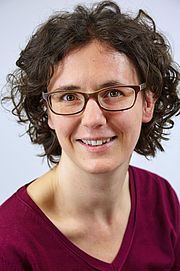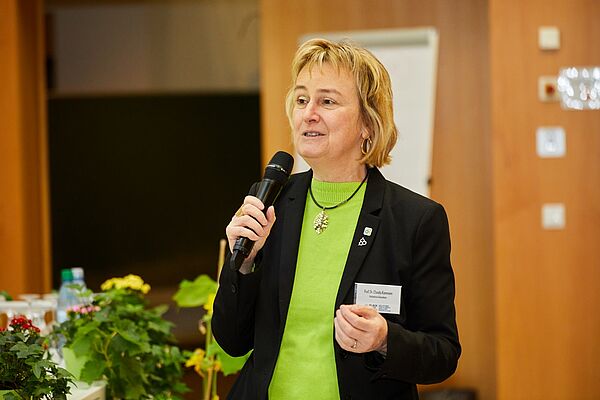Scorching heat in town squares, stuffy attic apartments, flooding on the streets – climate change is now a strong presence in our cities too. Large, shady trees can help to mitigate the impact of rising temperatures, but how do you keep urban trees healthy and promote their growth? The Geisenheim project 'Black2GoGreen', led by Professor Claudia Kammann, focuses primarily on the use of biochar macadam urban tree substrates – mixtures of crushed rock, compost, and biochar.
Professor Kammann explains: “Just a few grams of biochar can have an internal surface area of hundreds of square meters, which means that it can bind organic pollutants and heavy metals very well, similar to activated carbon. It can also retain nutrients and make them available to plants, as well as store a lot of water due to its porosity.” Its application is also understood as a climate protection measure, as biochar enables the long-term storage of CO2 that has been removed from the atmosphere by the growth of the biomass used for biochar production.
International Exchange
The biochar macadam substrates were developed in Stockholm and have so far only been used in Sweden, Austria, and Switzerland. Projects from these countries have impressively demonstrated the impact of this new construction method. At Hochschule Wädeswil in Zurich, for example, biochar is used specifically to guide the roots of urban trees, which opens up entirely new possibilities in underground spatial planning. Biochar also plays an important role in the 'sponge city' construction method, which, for example, the city of Graz has employed to cope with heavy rainfall, holding onto excess water that drains into the underground, load-bearing gravel structure.
In order to advance research into biochar substrates as quickly as possible, 'Black2GoGreen' aims to network scientists, manufacturers, and potential users from all over the world. Kammann acknowledges how successful this approach was at the recent symposium: “We are delighted that there was so much interest and that the networking of pioneers and players in this important field was so successful. Our aim is to help break down barriers and address open questions so that more local authorities can take the first steps towards testing this new construction method for more urban green spaces.”
The Future of the Project
Following the inspiring symposium at Hochschule Geisenheim University, the 'Black2GoGreen' research project is continuing apace. An online platform has been established (www.black2gogreen.de), which serves as an open source knowledge hub for working with biochar substrates. Regular online meetings are planned to deepen the dialog and adapt methods to new regions. Projects from partner cities are also to be given scientific support. The next major milestone is the conference in March 2025, which will focus on further innovations and developments.

























